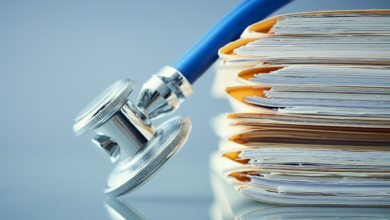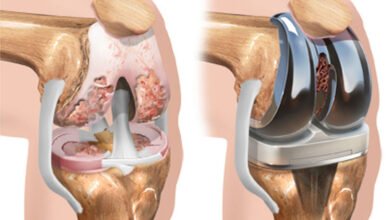A Comprehensive Guide to Managing High Blood Pressure

High blood pressure, also known as hypertension, is a prevalent health condition that affects millions of people worldwide. It is often referred to as the “silent killer” because it rarely exhibits noticeable symptoms but can lead to severe health complications if left uncontrolled. In this article, we will explore the critical aspects of managing high blood pressure, providing you with valuable insights and practical tips to take charge of your cardiovascular health.
As a leading cause of heart disease, stroke, and other vascular problems, high blood pressure demands our attention and proactive management. From understanding the basics of blood pressure to lifestyle changes, medications, and monitoring techniques, we will cover all you need to know to effectively manage this condition and lead a healthier, more fulfilling life. Whether you’ve recently been diagnosed with high blood pressure or have been living with it for years, this comprehensive guide will empower you to make informed decisions and take control of your well-being.
Managing High Blood Pressure
What Is High Blood Pressure?
High blood pressure, often referred to as hypertension, is a medical condition characterized by consistently elevated force of blood against the walls of your arteries. This force is measured in millimeters of mercury (mm Hg) and is typically represented as two numbers, with the higher number known as systolic pressure and the lower number as diastolic pressure.
This condition is often called “high blood pressure” because it describes the pressure that blood exerts on artery walls when the heart beats (systolic pressure) and when the heart is at rest between beats (diastolic pressure).
Understanding high blood pressure is essential because it is a significant risk factor for various cardiovascular problems, including heart disease and stroke. Regular monitoring and management are crucial to maintaining good health and preventing serious complications associated with this condition.
Read More: Top 5 Reasons for High Blood Pressure
The Silent Killer
High blood pressure has earned the ominous nickname of “the silent killer” for a compelling reason. Unlike many health conditions that manifest with noticeable symptoms, hypertension often develops stealthily, without any apparent warning signs. This silent progression can make it particularly treacherous, as individuals may remain unaware of their elevated blood pressure levels until serious complications arise.
The absence of overt symptoms underscores the importance of regular blood pressure monitoring, as early detection is key to effective management. It is a condition that can quietly and gradually damage your blood vessels, heart, and other vital organs over time. Therefore, staying vigilant through routine check-ups and adopting a healthy lifestyle is essential to keep this silent adversary in check.
Causes and Risk Factors
Understanding the underlying causes and associated risk factors of high blood pressure (hypertension) is pivotal in effectively managing this common health concern. While the precise origin of primary hypertension often remains elusive, several contributing factors can be influenced by genetic predisposition, lifestyle choices, and specific medical conditions.
In addition to primary hypertension, there is secondary hypertension, which is provoked by underlying medical issues, medications, or other identifiable causes. Identifying these root causes is critical for tailoring appropriate treatment and managing blood pressure effectively.
Moreover, comprehending the risk factors that contribute to the development of high blood pressure is essential in implementing preventive measures and making informed choices for better cardiovascular health. Factors such as obesity, smoking, excessive alcohol consumption, and a high-sodium diet all play significant roles in elevating the risk of hypertension. Recognizing and addressing these risk factors can go a long way in maintaining optimal blood pressure levels.
Secondary Hypertension
Secondary hypertension is a distinct form of high blood pressure that arises as a result of underlying medical conditions or external factors. Unlike primary hypertension, which often lacks a clearly identifiable cause, secondary hypertension is attributed to specific, identifiable triggers.
Various medical conditions can give rise to secondary hypertension, including kidney disease, hormonal disorders (such as Cushing’s syndrome or hyperthyroidism), and certain medications or substances (like oral contraceptives, decongestants, or illegal drugs). In such cases, effectively managing blood pressure involves not only controlling the elevated readings but also addressing the underlying issue.
Identifying the root cause of secondary hypertension is crucial because treating the underlying condition can often lead to a significant improvement in blood pressure levels. Thus, if you are diagnosed with secondary hypertension, it is essential to work closely with healthcare professionals to determine and address the specific trigger contributing to your elevated blood pressure. This approach ensures a more targeted and effective management strategy.
Risk Factors
Several risk factors contribute to the development and exacerbation of high blood pressure, making it crucial to recognize and address these factors to maintain optimal cardiovascular health. Being aware of these risk elements empowers individuals to make informed choices and adopt preventive measures. Here are some significant risk factors associated with high blood pressure:
Obesity: Carrying excess body weight, particularly around the waist, increases the strain on the heart and blood vessels, leading to elevated blood pressure.
Smoking: Smoking and exposure to tobacco smoke can constrict blood vessels and raise blood pressure. Quitting smoking is a vital step in reducing this risk.
Excessive Alcohol Consumption: Consuming alcohol in excess can lead to high blood pressure. Limiting alcohol intake to moderate levels is advisable.
High-Sodium Diet: A diet high in salt or sodium can cause the body to retain fluid and increase blood pressure. Reducing salt intake is essential for blood pressure management.
Lack of Physical Activity: A sedentary lifestyle contributes to weight gain and can lead to high blood pressure. Regular physical activity helps maintain a healthy weight and supports cardiovascular health.
Stress: Chronic stress can trigger temporary spikes in blood pressure, and over time, it may contribute to sustained hypertension. Practicing stress-reduction techniques can be beneficial.
Family History: A family history of high blood pressure increases your risk of developing the condition. It underscores the importance of regular blood pressure monitoring.
Age: Blood pressure tends to rise with age. Being mindful of this natural progression and adopting a healthy lifestyle can help mitigate age-related increases.
Race and Ethnicity: Certain racial and ethnic groups, such as African Americans, are more prone to hypertension. Understanding these disparities can lead to more targeted prevention and management efforts.
Other Health Conditions: Medical conditions like diabetes, sleep apnea, and kidney disease can elevate the risk of high blood pressure. Managing these underlying health issues is integral to blood pressure control.
Monitoring Your Blood Pressure
Regular monitoring of your blood pressure is a fundamental aspect of managing and maintaining your cardiovascular health. This proactive approach allows you to track changes in your blood pressure and detect any deviations from the normal range early on. Monitoring can be conducted in various settings, including at home or during medical check-ups. Here, we delve into the importance of regular blood pressure monitoring and understanding your readings.
Importance of Regular Monitoring
Consistent blood pressure monitoring provides several crucial benefits:
- Early Detection: Monitoring enables the early identification of high blood pressure, allowing for timely intervention and management.
- Treatment Evaluation: For individuals already diagnosed with hypertension, regular monitoring helps healthcare professionals assess the effectiveness of treatment and make necessary adjustments.
- Risk Assessment: Monitoring aids in assessing your risk of cardiovascular complications associated with high blood pressure, such as heart disease and stroke.
- Lifestyle Management: It empowers individuals to make informed lifestyle choices, such as dietary adjustments and stress management, based on their blood pressure readings.
Blood Pressure Readings
Understanding your blood pressure readings involves interpreting the two numbers typically provided:
- Systolic Pressure: The higher number represents the force of blood against artery walls when the heart beats or contracts.
- Diastolic Pressure: The lower number represents the force of blood when the heart is at rest between beats.
A standard blood pressure reading is expressed as systolic pressure over diastolic pressure, such as “120/80 mm Hg.” It’s essential to know what constitutes normal and high blood pressure levels:
- Normal: Typically, a blood pressure reading below 120/80 mm Hg is considered normal.
- Elevated: Readings between 120-129 (systolic) and less than 80 (diastolic) mm Hg are categorized as elevated blood pressure.
- Hypertension Stage 1: When systolic pressure falls between 130-139 mm Hg or diastolic pressure between 80-89 mm Hg.
- Hypertension Stage 2: This stage is characterized by systolic pressure of 140 mm Hg or higher and diastolic pressure of 90 mm Hg or higher.
- Hypertensive Crisis: Extremely high blood pressure readings of 180/120 mm Hg or higher require immediate medical attention.
Lifestyle Modifications
Diet and Nutrition
Adopting a heart-healthy diet rich in fruits, vegetables, whole grains, and low in sodium can significantly lower blood pressure.
Physical Activity
Regular exercise helps improve cardiovascular health and can lead to lower blood pressure levels.
Stress Management
Stress can contribute to high blood pressure. Practicing relaxation techniques, such as yoga and meditation, can help manage stress effectively.
Medications
Prescription Medications
In some cases, healthcare providers may prescribe medications to lower blood pressure. It’s essential to take these medications as directed.
Over-the-Counter Remedies
Certain over-the-counter remedies and supplements may interact with blood pressure medications. Consult your healthcare provider before taking them.
Complementary Therapies
Herbal Supplements
Some herbal supplements, like garlic and hawthorn, are believed to have blood pressure-lowering effects. However, their efficacy varies, and it’s essential to consult a healthcare professional.
Read More: Best Minerals and Vitamins in Low Blood Pressure
Conclusion
In conclusion, it is imperative to take proactive steps to manage high blood pressure effectively. This silent but potentially harmful condition can lead to severe health issues if left unchecked. By understanding its causes, risk factors, and adopting a healthy lifestyle, you can gain control over your blood pressure levels and enjoy a healthier, happier life.
Regular monitoring of your blood pressure is essential, whether done at home or with the guidance of a healthcare professional. Knowing your numbers and recognizing what constitutes normal and high blood pressure readings is the first step towards managing this condition.
Lifestyle modifications, including dietary changes, regular physical activity, and stress management, play a pivotal role in reducing high blood pressure. These changes can significantly improve your overall cardiovascular health and contribute to maintaining optimal blood pressure levels.
.
FAQs
Can high blood pressure be cured completely?
High blood pressure can be managed effectively, but it may require ongoing treatment and lifestyle changes. In some cases, it can be controlled to the point where medications are no longer needed.
What are the potential complications of untreated high blood pressure?
Untreated high blood pressure can lead to heart disease, stroke, kidney damage, and vision problems.
How often should I monitor my blood pressure at home?
It’s recommended to monitor your blood pressure at least once a day, preferably at the same time, to establish a consistent pattern.
Are there any foods that can help lower blood pressure naturally?
Yes, foods rich in potassium, such as bananas and spinach, can help lower blood pressure. Additionally, reducing sodium intake is crucial.
Is it safe to combine herbal supplements with prescription blood pressure medications?
Combining herbal supplements with prescription medications can have unpredictable effects on blood pressure. Always consult your healthcare provider before trying any complementary therapies.







